

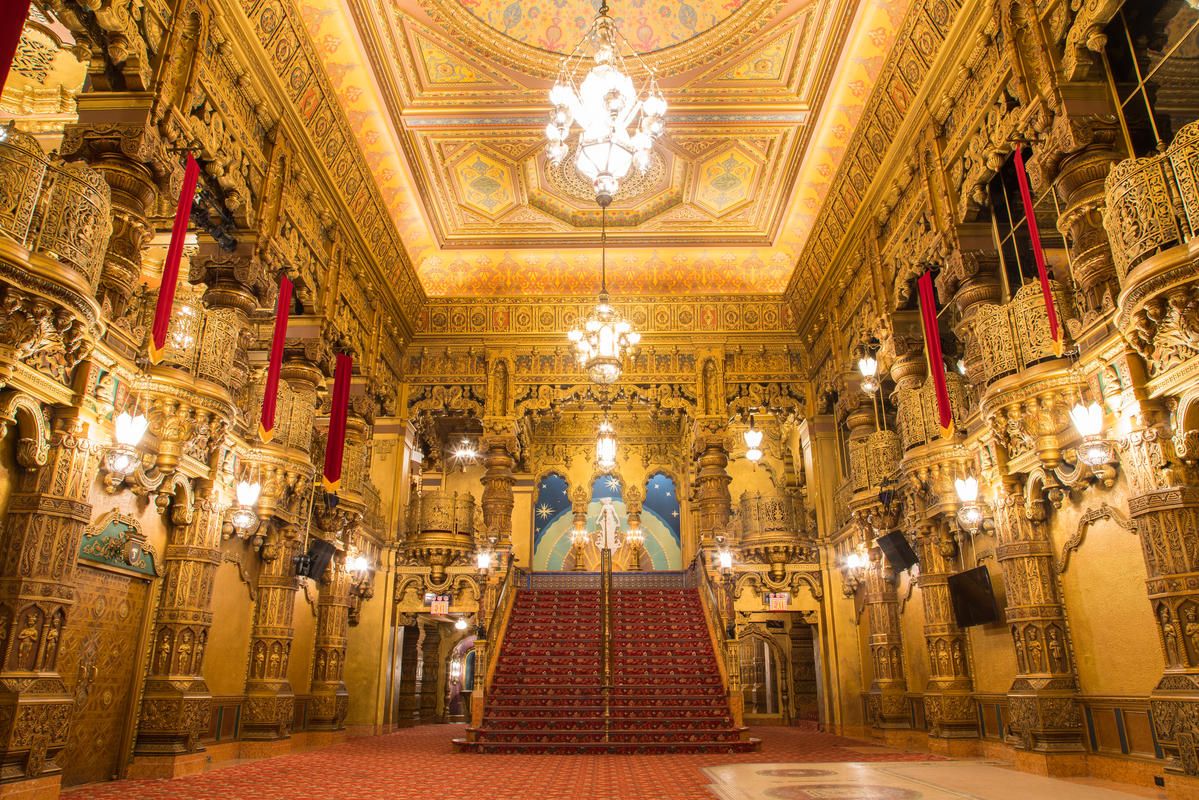
The words “stunning” and “opulent” are hardly enough to describe the grandeur of Washington Heights‘ United Palace, the fifth of Loew’s Wonder Theatres built in the New York City metropolitan area. When it opened in 1930 as the Loew’s 175th Street Theatre, the space primarily hosted first-run movies and vaudeville events. Today, it continues to stand thanks to the efforts of the United Palace of Spiritual Arts, which saved the building from demolition by purchasing it in 1969.
While it’s still home to a spiritual center today, the theater — Manhattan’s fourth largest at 3,400 seats — also operates as a performance venue that has hosted a variety of artists including Lenny Kravitz, Adele, Bryan Ferry, Neil Young, and Bob Dylan, to name a few. In 2023, United Palace hosted the Tony Awards which have previously been hosted at the Plaza Hotel, Radio City Music Hall, and the Waldorf-Astoria Hotel. Explore 10 secrets of the United Palace below!
1. The United Palace Still Looks Like It Did When It Opened
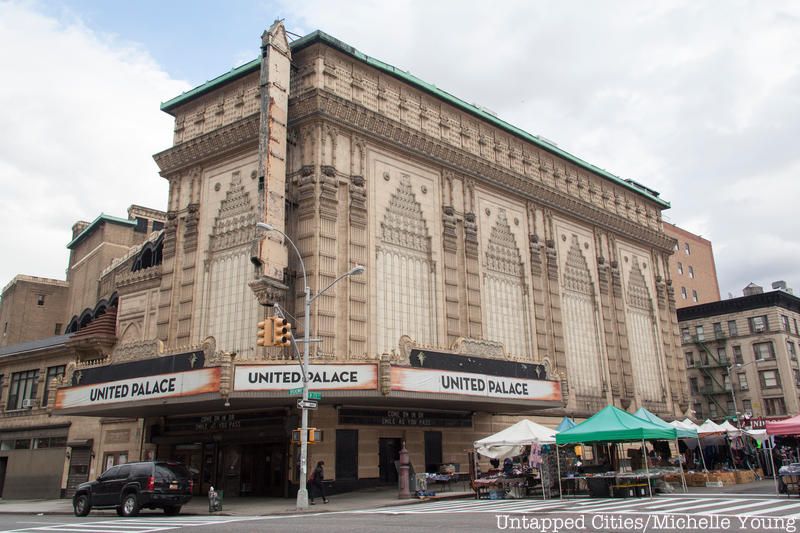
When Loew’s 175th Street shuttered in 1969, Rev. Ike’s church purchased the building that same year for over half a million dollars. The building immediately began hosting Sunday services and extensive restoration efforts were made to bring the space back to the original grandeur envisioned by architect, Thomas Lamb. Today, the theater still looks very much as it did when it first opened in 1930 with the exception of a cupola (prayer tower) that was added in the 1970s by Rev. Ike. Located on the northeast corner of the building, on Wadsworth Avenue and West 176th Street, it’s crowned by a “Miracle Star of Faith,” which is visible from the George Washington Bridge and New Jersey.
2. The Theater is Home to One of the City’s Only Remaining Wonder Morton Organs
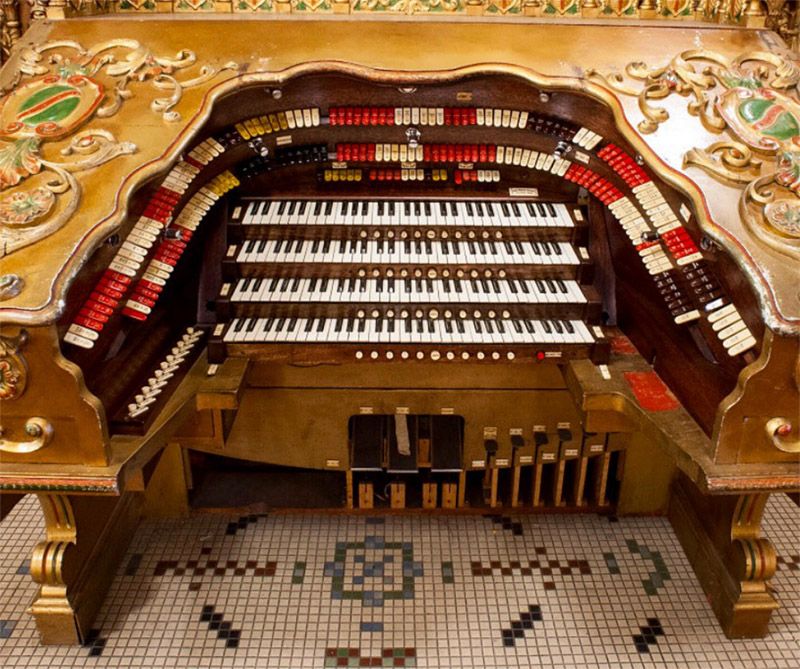
An estimated 12,000 theatre organs, used to soundtrack silent films, were once spread out across the United States in the 1930s. According to the United Palace, Robert-Morton – the second largest theatre organ company at the time – built five identical “Wonder” organs to place in each of Loew’s five flagship theaters. Of this collection, the one inside the United Palace is the last one that’s still in its original home and “completely unaltered.”
To restore the organ, the New York Theatre Organ Society (NYTOS) and the United Palace of Cultural Arts partnered together to raise $1,000,000 over the course of five years. The ultimate goal is to make it playable again after years of water and fire damage.
3. The Original Elevator Remains
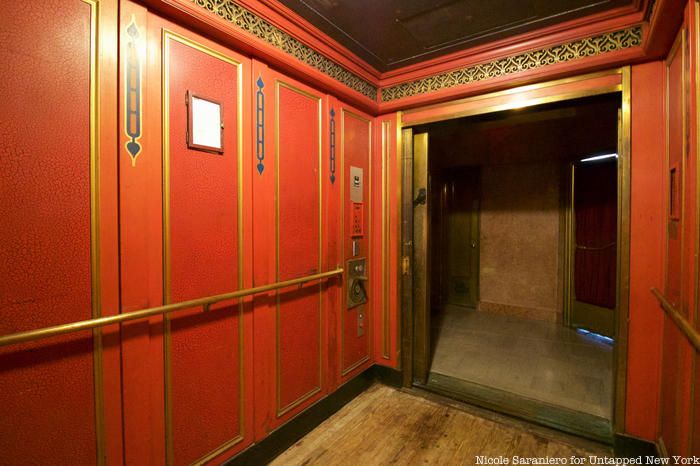
In the lobby of the theater, you can still see (and ride) the original 1930s elevator. Recently restored, the elevator has a bright red paint job with gold accents. Above, the ceiling is painted blue with twinkling stars. The old-timey elevator still requires an operator and is available for use only upon request.
4. There Was a Men’s Smoking Lounge and Lady’s Retiring Room
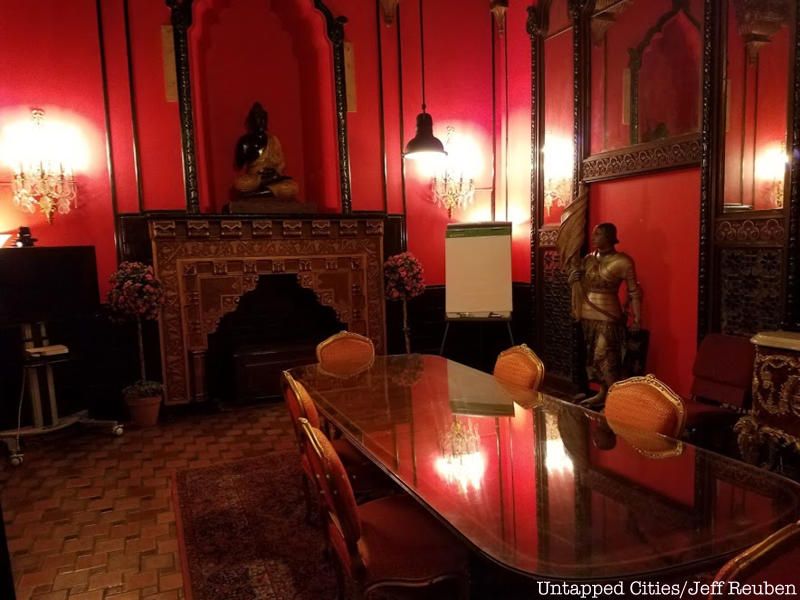
Michael Fitelson, the executive director of the United Palace of Cultural Arts, tells us that one of his favorite fun facts about the theater is that it was home to a men’s smoking lounge and a lady’s retiring room (essentially the same thing just under a different name).
Both were on the mezzanine, acting as adjunct places to the restrooms. For a while, the men’s smoking lounge also served as Rev. Ike’s personal library, but today, it’s a VIP area and meeting space. The retiring room, on the other hand, was never as grand and functions now as a storage room.
5. There Are Authentic Louis XV and XVI Furnishings Inside
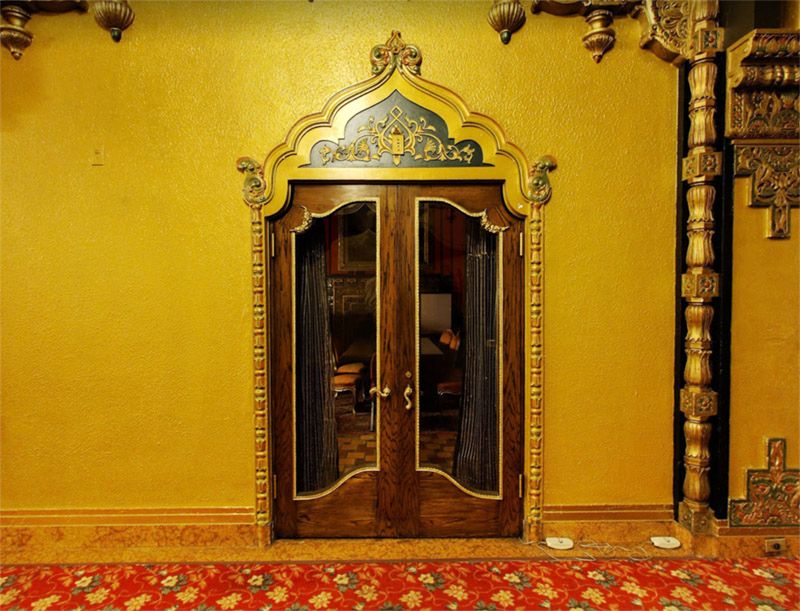
On its own, the United Palace is already what The New York Times calls a “delirious masterpiece.” But Rev. Ike, upon acquiring the space, decided to add to the lavishness of the building by bringing in authentic Louis XV and Louis XVI furniture. Today, these furnishings can be seen in the former men’s smoking room, which also features a balcony and a floor with decorative tile work, made by the Mueller-Mosaic Company of Trenton, New Jersey.
6. It Is the Only Loew’s Wonder Without a Distinctive Style
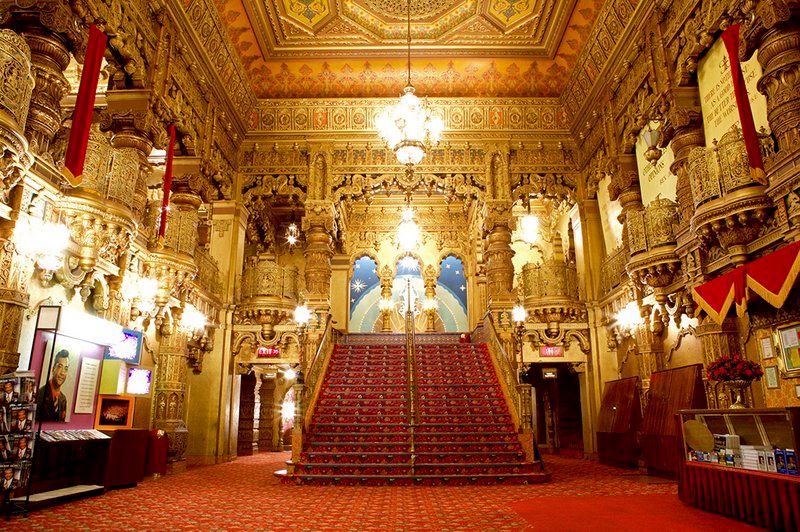
With the exception of the United Palace, each of the Loew’s Wonder Theatres had a distinctive architectural style, ranging from French Renaissance to Venetian to Spanish. However, the United Palace was a “mash-up of all types of exotic, Far Eastern symbols and iconography,” according to Fitelson. In fact, the Far East was “all the rage back in the 1920s,” and the theater was purposefully designed to transport visitors from New York City streets to a “fantasyland.” This was especially important because the United Palace was the only Loew’s Theatre to open after The Great Depression, creating a need for “escapist” entertainment.
Decorative specialist, Harold Rambusch — who also did the Waldorf Astoria and Radio City Music Hall — was the mastermind behind the theater’s elaborate interior. “There’s just a huge variety of architectural motifs,” says Fitelson. If you have the opportunity to enter the stunning space, keep an eye out for eclectic features, including lions, dragons, Buddhas and cherubs. To give you a hint of where to start, seahorses can be spotted dangling from a chandelier in the grand foyer, says Fitelson.
7. You Can Adopt a Wonder Organ Pipe
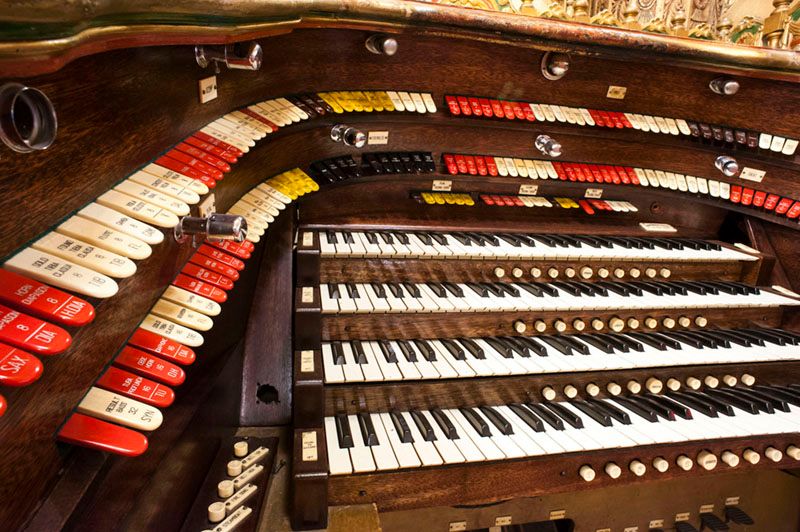
If you’d like to play your part in helping to restore the United Palace’s Wonder Morton Organ, consider adopting a part of the instrument, ranging from a pipe to the entire console, which will cost you a hefty $50,000. All the proceeds will go towards the restoration of the historical organ.
In exchange for a contribution, donors will also receive a certificate of adoption, their name inside a bound book that will be stored in the left side chamber, and a plaque (if the donation is over $300). See here for a full list of available parts and prices.
8. The United Palace Was Renamed for Inclusivity
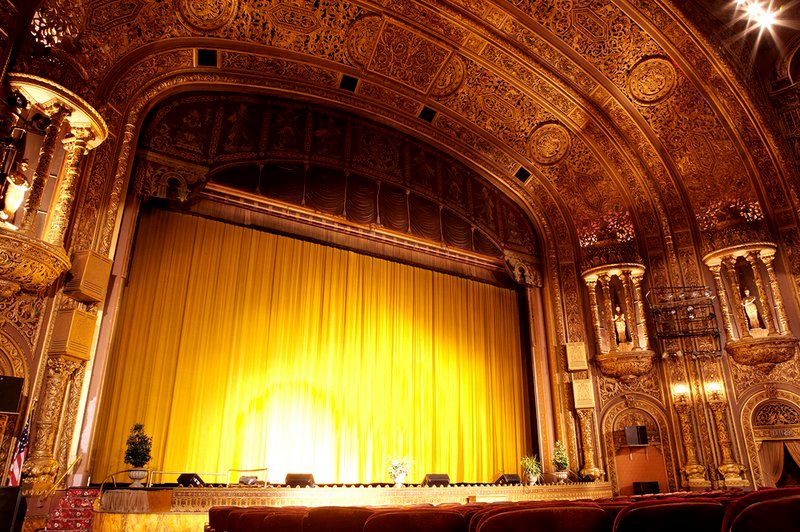
When the church purchased the theater building, it was renamed the “United Palace” to ensure that all would feel welcomed when they stepped inside. This feeling of inclusivity has been a core value of all three factions of the United Palace: the venue and theater, the spiritual center, and the United Palace of Cultural Arts non-profit. “We want people to believe that this building belongs to them,” said Rev. Ike in The City Concealed. “We call it the heart of Washington Heights.”
Following Rev. Ike’s death in 2009, his son, Xavier, turned the church into an-all inclusive spiritual center. Likewise, the United Palace of Cultural Arts nonprofit functions as a community arts center, which screens movies and offers performing arts events with a larger goal to educate and unite the neighborhood.
9. The United Palace Took Only 13 Months to Build
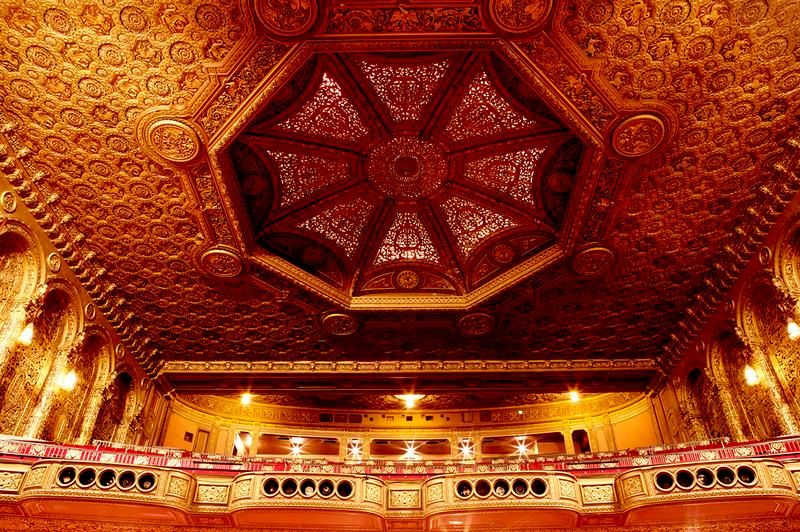
When asked about what was one of the most impressive facts about the United Palace, Mike Fitelson tells us that it’s astonishing how quickly the building was built, given how intricate the architecture and interior are. At the time, “they were building dozen and dozens of theaters every year,” Fitelson notes. “They had a pretty strong process going, and it was the fifth one of the Wonder theaters, so there’s was a groove going.”
This is particularly impressive when considering the fact that the stock market crash took place right before the building’s debut. “It would sort of be similar to somebody who was building a new building downtown, at the World Trade Center, on September 10th, 2001,” says Fitelson.
10. Lin-Manuel Miranda is a Long-Time Benefactor of the United Palace
If you’ve been to the United Palace recently, and noticed that the sound was crystal clear, you have lyricist, playwright, and actor Lin-Manuel Miranda (of In the Heights and Hamilton fame) to thank. He’s a long-time benefactor who donated $100,000 to help pay for a world-class projector that’s suited for the grand setting of the theater. His donation spark an annual gala that helped raise funds for a state-of-the-art sound system.
In addition to his generous contribution, Miranda also helped to launch the theater’s fundraising campaign, Reawaken Wonder at Timeless Movie Palace, to bring movies back into the venue. Before the upgrade, the theater’s old equipment only played BluRay disks.
Next, take an Inside Video Look at the 5 NYC Loews Wonder Theatres and read about Abandoned Theaters in NYC and NJ.

